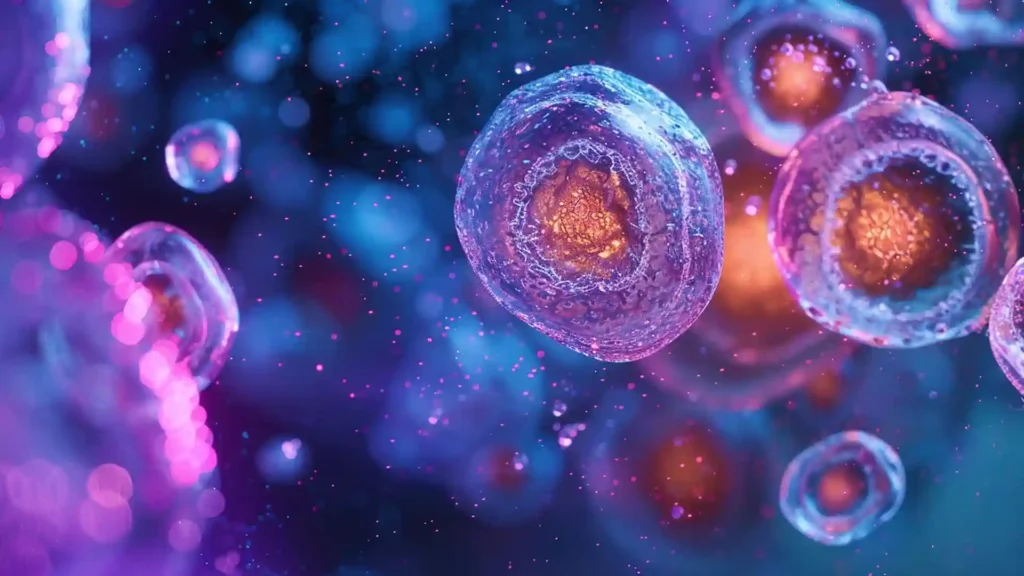Table of Contents
Introduction to MPI-CBG Frederic Bonnet’s Role in Science
The MPI-CBG Frederic Bonnet is well known for his role at the Max Planck Institute of Molecular Cell Biology and Genetics (MPI-CBG). His work has led to several key discoveries in the field of biology, helping scientists worldwide. The MPI-CBG is one of the leading research institutes where experts like Frederic Bonnet push the boundaries of what we know about life and cells.
Frederic Bonnet focuses on understanding the basic units of life—cells. He works on how cells grow, change, and communicate with each other. His findings have given scientists new ways to think about how living things work. By diving deep into cell biology, MPI-CBG Frederic Bonnet has become an important figure in advancing science.
At MPI-CBG, Frederic Bonnet collaborates with other brilliant minds, making new discoveries possible. His research has a huge impact, especially when it comes to understanding complex diseases like cancer and other genetic disorders. Through his studies, MPI-CBG Frederic Bonnet continues to be a driving force in the world of science, influencing both current research and future discoveries.
The Importance of Molecular Cell Biology and MPI-CBG Frederic Bonnet’s Research
Molecular cell biology is an essential field that studies the building blocks of life: cells. Understanding how cells function is important for many reasons. First, cells are the basic units of all living organisms. They make up everything from tiny bacteria to large plants and animals. When scientists study cells, they learn how life works at its most basic level. This knowledge is crucial for advancing medicine and improving human health.
The contributions of Frederic Bonnet to this field significantly enhance our understanding of molecular mechanisms. He explores how cells communicate with each other, which is vital for keeping our bodies healthy. When cells send signals correctly, they work together smoothly. However, if this communication goes wrong, it can lead to diseases like cancer. By studying these processes, Bonnet helps researchers understand how to fix these problems. His work sheds light on the complex interactions within cells and how they can affect the entire organism.
Another important aspect of Bonnet’s research is studying how cells grow and divide. Cell growth and division are crucial processes that allow organisms to develop, heal, and reproduce. When scientists understand these processes, they can develop better treatments for diseases that arise from cell growth gone wrong. For instance, many cancers are caused by uncontrolled cell division. By researching these issues, the scientist helps pave the way for more effective therapies.
In addition, the focus on genetics and how genes control cell behavior is a vital area of study. The genetic code in our cells acts like an instruction manual, telling cells how to function, grow, and respond to their environment. If there are errors in this code, it can lead to health problems. Understanding how these genetic instructions work helps scientists develop new medicines that can target these issues. The contributions of Frederic Bonnet in this area are helping to unlock the secrets of our DNA, leading to important advancements in health care.
Overall, the importance of molecular cell biology cannot be overstated. The research conducted by Bonnet is a critical piece of this puzzle. His discoveries help scientists understand the fundamental aspects of life, from cell communication to genetic control. As we continue to explore this field, the work of researchers like Frederic Bonnet will undoubtedly lead to significant breakthroughs in medicine and biology. This research is crucial for solving many of the health challenges we face today.
How MPI-CBG Frederic Bonnet Contributes to Genetics Research
Genetics research is a key area of science that explores how traits are passed from one generation to the next. At the forefront of this field is Frederic Bonnet, whose work at the Max Planck Institute has opened new doors in understanding genetic processes. His research focuses on how genes influence cell behavior, which is essential for understanding both normal development and diseases.
One significant contribution from this researcher is his exploration of gene expression. Gene expression is the process by which information from a gene is used to create functional products, like proteins. These proteins are crucial for various cellular functions. By studying how genes turn on and off, Bonnet has provided insights into how cells adapt to their environments. This understanding is vital for developing new therapies for diseases linked to genetic mutations.
Moreover, the scientist’s research delves into the role of non-coding RNAs, which are parts of the genome that do not code for proteins but still play critical roles in regulating gene expression. He has demonstrated how these non-coding RNAs can influence cell behavior and contribute to diseases like cancer. By uncovering the functions of these RNA molecules, he is helping researchers develop new strategies for targeting genetic disorders and improving treatment options.
Frederic Bonnet also studies how genetic variations affect cell behavior in different environments. For instance, he investigates how certain genes may make cells more susceptible to diseases in specific conditions. This research is essential for personalized medicine, where treatments can be tailored to an individual’s genetic makeup. Understanding these genetic variations can lead to more effective therapies that are specifically designed for different patients.
Overall, the contributions of this expert to genetics research are profound. His work not only enhances our understanding of how genes function but also paves the way for new medical advancements. By studying gene expression, non-coding RNAs, and genetic variations, he is helping to solve some of the biggest challenges in health and disease. His dedication to genetics research at the MPI-CBG plays a crucial role in shaping the future of medicine and improving patient care.

MPI-CBG Frederic Bonnet’s Studies on Cell Communication and Growt
Frederic Bonnet’s research focuses significantly on how cells communicate and grow, which is vital for maintaining healthy tissues in living organisms. Cells use various signals to interact with one another, allowing them to share information and coordinate their actions. This communication is essential for processes such as development, healing, and immune responses. By studying these interactions, this researcher helps uncover how cells work together to form complex tissues.
One important area of this expert’s work is examining signaling pathways. These pathways are like communication highways inside cells, transmitting signals from the cell surface to the nucleus, where genes are activated or deactivated. Bonnet investigates how these pathways influence cell behavior, such as whether a cell will grow, divide, or change into a different type of cell. Understanding these mechanisms is crucial for developing therapies for diseases where cell communication goes wrong, such as cancer.
In addition to signaling pathways, this scientist studies how cells grow and divide. Cell growth is a highly regulated process, and any errors in this regulation can lead to serious health issues. By exploring the factors that control cell growth, Bonnet contributes to the understanding of how tissues develop and repair themselves. His research helps identify potential targets for drugs that could stop uncontrolled cell growth in diseases like cancer.
Another focus of Bonnet’s research is the role of the cell environment in communication and growth. Cells do not operate in isolation; they are influenced by their surroundings. Factors such as nutrients, oxygen levels, and neighboring cells all play a role in how a cell behaves. By studying these environmental factors, this researcher reveals how external conditions can affect cell function. This understanding is crucial for creating better strategies for tissue engineering and regenerative medicine.
Overall, the studies conducted by this researcher on cell communication and growth provide essential insights into how cells interact and function. His work has far-reaching implications for medicine, especially in understanding diseases related to cell communication and growth. By uncovering the complexities of these processes, Bonnet is paving the way for new treatments and therapies that can improve human health and well-being.
The Impact of MPI-CBG Frederic Bonnet’s Work on Medicine
The work of MPI-CBG Frederic Bonnet has a major impact on medicine. By studying cells and genetics, Bonnet helps researchers develop better treatments for diseases. Many of the health issues we face today, like cancer and genetic disorders, can be better understood through his research.
MPI-CBG Frederic Bonnet focuses on the small details that make a big difference. His work helps scientists figure out how to stop diseases before they start. For example, by studying cell growth, Bonnet’s research can help doctors find ways to prevent cancer cells from spreading.
Through his work at MPI-CBG, Frederic Bonnet’s research helps create new therapies that can improve the lives of people with serious illnesses. The research done by MPI-CBG Frederic Bonnet makes a big difference in the medical world.
Frederic Bonnet at MPI-CBG: Unveiling the Secrets of Life
MPI-CBG Frederic Bonnet has spent years uncovering the secrets of life. His research at the Max Planck Institute focuses on understanding how life works at the smallest level. By looking closely at cells and genetics, Bonnet’s research helps reveal how our bodies function.
Frederic Bonnet’s work is important because it helps answer big questions about life. His research helps us understand what goes wrong when diseases form, and how we can fix those problems. MPI-CBG Frederic Bonnet continues to explore these mysteries through his work.
By unveiling these secrets, MPI-CBG Frederic Bonnet helps scientists improve medicine, develop new treatments, and make important discoveries about life itself. His research is opening doors to new possibilities in science.

Why MPI-CBG Frederic Bonnet’s Discoveries Matter for the Future
The discoveries made by MPI-CBG Frederic Bonnet are not just important for today, but for the future as well. His work on cells and genetics will help future generations of scientists solve problems that we cannot fix today. MPI-CBG Frederic Bonnet plays a key role in creating a better future for science and medicine.
By continuing his research, MPI-CBG Frederic Bonnet helps push the boundaries of what we know. His work at MPI-CBG gives future scientists the tools they need to continue making discoveries. As we learn more about cells and genetics, we can find new ways to treat diseases and improve health.
Frederic Bonnet’s work at MPI-CBG is shaping the future of science. His discoveries will continue to have an impact for many years to come.
The Innovations Brought by MPI-CBG Frederic Bonnet in Cell Biology
Frederic Bonnet’s work at the Max Planck Institute has brought several important innovations in cell biology. MPI-CBG Frederic Bonnet has introduced new ways of studying how cells function and communicate, which has greatly improved the understanding of life at the cellular level. These innovations are crucial for advancing medicine and biology.
One of the key innovations from MPI-CBG Frederic Bonnet is his research on cell communication. He has discovered new methods of how cells send signals to each other. This is important because it helps scientists learn how diseases, like cancer, develop when these signals go wrong.
MPI-CBG Frederic Bonnet also brought new techniques to study cell growth and division. These techniques help scientists observe cells in more detail, leading to better insights into how our bodies function. His work is essential for future breakthroughs in health and biology.
A Deep Dive into MPI-CBG Frederic Bonnet’s Achievements
Looking closely at MPI-CBG Frederic Bonnet’s achievements shows us just how much he has contributed to science. His research has led to many discoveries about cells, their functions, and how they interact with each other. His achievements at MPI-CBG have made him a respected figure in the scientific world.
One of Frederic Bonnet’s most significant achievements is his work on understanding the genetic code of cells. This research helps scientists understand how DNA controls the way cells behave. It also gives new insight into how diseases like cancer can be stopped at the genetic level.
Another big achievement of MPI-CBG Frederic Bonnet is his discovery of new ways to track how cells grow and change over time. By using advanced technology, he has helped scientists see how small changes in cells can have a big impact on the body’s health. His achievements continue to inspire future research.
The Role of MPI-CBG Frederic Bonnet in Advancing Health Sciences
MPI-CBG Frederic Bonnet plays a vital role in advancing health sciences through his research. His work on cell biology and genetics helps doctors and scientists develop better ways to treat diseases and improve healthcare. Without his research, many medical breakthroughs would not have been possible.
At MPI-CBG, Frederic Bonnet studies how cells behave in different conditions, such as during illness or injury. This research helps doctors understand what happens inside the body when something goes wrong. MPI-CBG Frederic Bonnet is also working on ways to use this information to create better treatments for diseases.
Through his contributions to health sciences, MPI-CBG Frederic Bonnet has helped advance medical research. His work continues to provide new knowledge that helps doctors and researchers find new ways to heal and prevent diseases.

What We Can Learn from MPI-CBG Frederic Bonnet’s Research
There is so much to learn from MPI-CBG Frederic Bonnet’s research. His studies provide a better understanding of the fundamental aspects of life. His work teaches us how cells function and interact, which helps in the development of new medicines and treatments for diseases.
One important lesson from MPI-CBG Frederic Bonnet’s research is the importance of communication between cells. When cells send the right signals, everything in the body works smoothly. But when this communication fails, it can lead to diseases. By studying these signals, scientists can develop treatments that help fix problems in cell communication.
Another lesson from MPI-CBG Frederic Bonnet’s work is the power of genetics. His research shows us how tiny changes in genes can have a big impact on health. This information is important for developing genetic therapies that can stop diseases before they start. MPI-CBG Frederic Bonnet’s research gives us valuable insights into how life works.
The Future of Science with MPI-CBG Frederic Bonnet’s Contributions
The future of science looks bright with the contributions of MPI-CBG Frederic Bonnet. His work is paving the way for new discoveries in cell biology, genetics, and medicine. As researchers continue to build on his work, we can expect to see many exciting developments in the years to come.
MPI-CBG Frederic Bonnet has laid the groundwork for future scientists to explore more about the inner workings of cells and genes. His research at MPI-CBG will continue to influence future studies, leading to breakthroughs in understanding diseases and how to treat them.
Looking ahead, the research done by MPI-CBG Frederic Bonnet will have a lasting impact on science. As scientists learn more from his work, new technologies and treatments will emerge that can change the way we approach health and medicine. The future holds many possibilities, thanks to the work of MPI-CBG Frederic Bonnet.
Conclusion
In conclusion, Frederic Bonnet’s work at the MPI-CBG is really important for understanding how cells communicate and grow. His studies help scientists learn how cells share information and work together. This knowledge can help us find new ways to treat diseases, like cancer, where cell growth goes wrong. The discoveries he makes can change how we think about health and medicine.
Overall, the research done by this scientist is paving the way for better treatments and therapies in the future. By understanding how cells behave and interact, we can create new solutions to help people live healthier lives. Frederic Bonnet’s studies remind us how fascinating and complex life is at the tiniest level, and how much more we can learn about our bodies.



